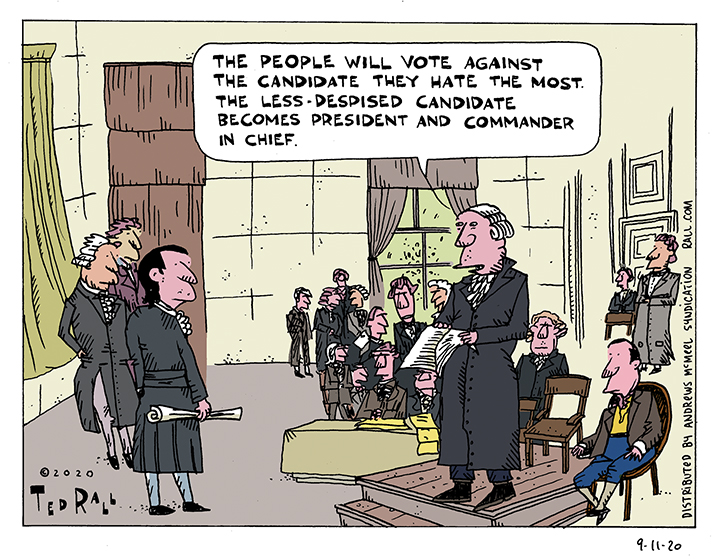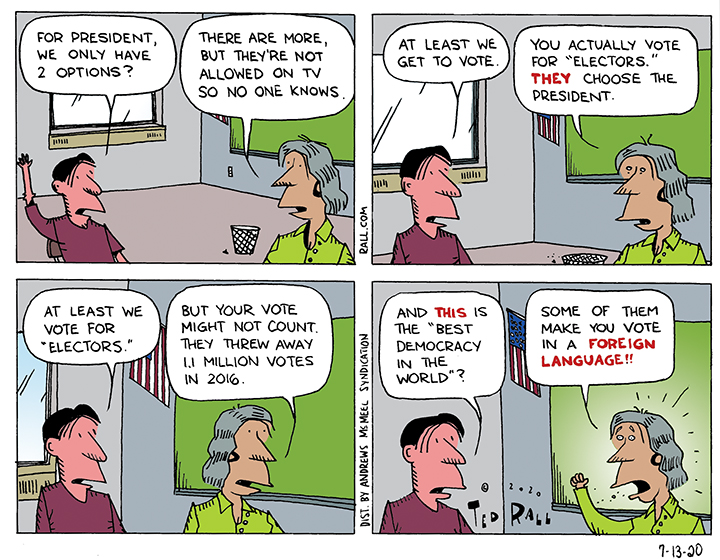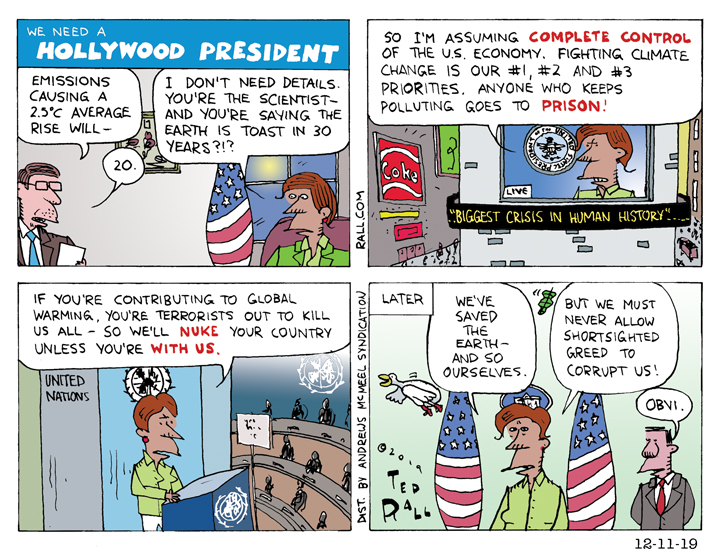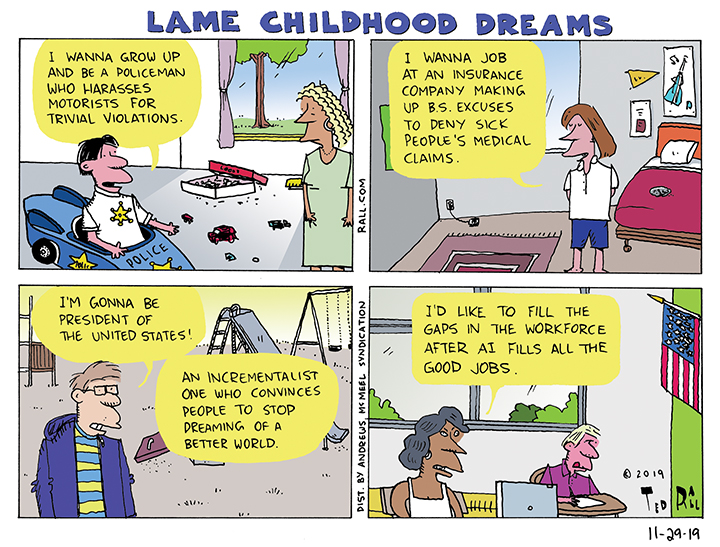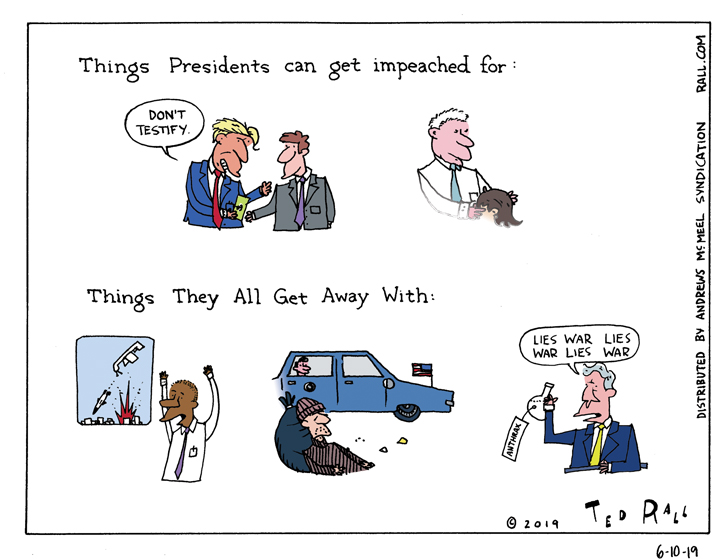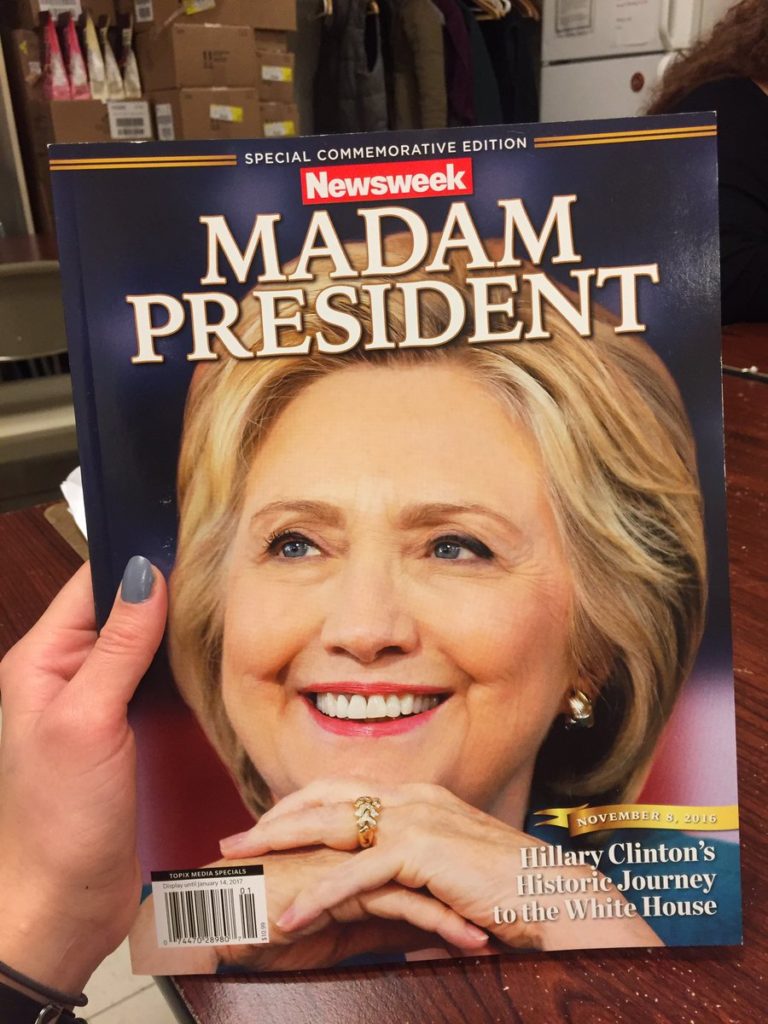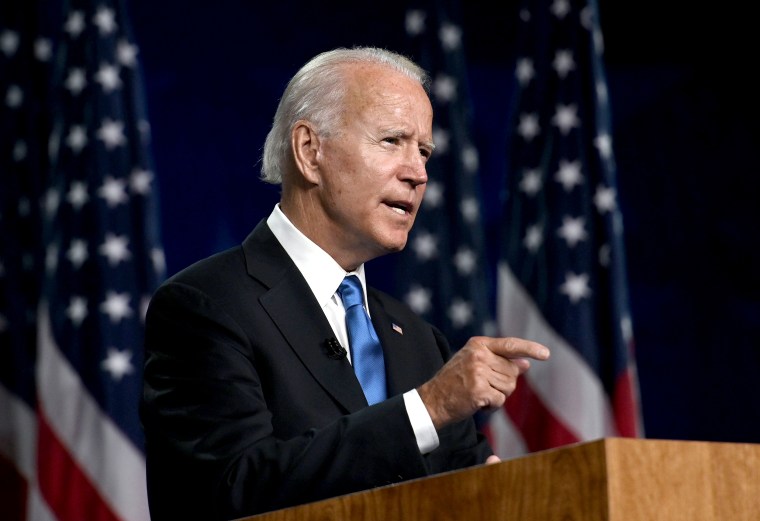
Past performance is no guarantee of future returns but there are few more reliable ways to predict what comes next than to examine the historical record because, most of the time, history really does repeat.
What kind of president would Joe Biden be? His centrist supporters assure progressives that he will be one of them, pushing an aggressive legislative agenda reminiscent of FDR’s New Deal. His Republican opponents portray him as a socialist. But Biden hasn’t actually promised anything ambitious.
The last two Democratic presidencies provide a good indication of what a Biden Administration would look like. Like Biden, Bill Clinton and Barack Obama hail from the centrist party establishment. If personnel is policy, the three men hang out with many of the same advisors, businesspeople and elected officials. They’re not identical: Clinton is a charismatic retail politician, Obama is aloof and professorial, and Biden is an LBJ-style buttonholer minus Johnson’s secret idealism. But they’re ideologically and temperamentally similar to a remarkable extent.
I remembered Clinton and Obama as deeply disappointing to voters with traditional liberal Democratic values. I remembered that most of their major legislative accomplishments would not have been out of place under a Republican administration.
When I checked the historical record recently, however, it was even worse than I remembered.
Clinton used his political capital to push through free trade deals like NAFTA and the WTO, which killed manufacturing jobs and drove the final nails into the coffin of big labor. He “ended welfare as we know it,” making it even more difficult for people who lost their jobs to get back on their feet and adding the chronically poor to the ranks of the homeless. Clinton signed Joe Biden’s now infamous 1994 crime bill into law, codifying a racist judicial system that disproportionately punishes black men for relatively minor offenses.
Clinton repealed the 1930s-era Glass-Steagall Act, banking deregulation set the stage for banks to wallow in the reckless predatory lending practices that tanked the global economy in 2008-09.
His most impressive achievement was balancing the federal budget and paying off the deficit, but he didn’t do it by raising taxes on the rich. He imposed austerity on social programs—just like a Republican would do.
I searched hard for Clintonian achievements that could credibly be called liberal or at least left of center, but aside from a few minor regulations here and there, there aren’t any. “So we liberals and radicals searched the Clinton administration for vast new programs to applaud. But nothing loomed into view,” Paul Berman wrote in The New Republic at the end of Clinton’s presidency in 2000. Clinton was a moderate Republican president.
In some ways—especially foreign policy—Obama was even worse. Clinton bombed with the bloody relentlessness of a Reagan or a Bush: Bosnia, Sudan, Afghanistan and, forgotten now, Iraq so much and so often that pilots dumped their bombs in the desert to cover for the fact that they were running out of fresh targets. His sanctions stopped everything, including medical supplies, from entering Afghanistan. But he had nothing on Obama.
After Col. Muammar Gaddafi signed a peace deal with Bush that ended Libya’s nuclear program, Obama assassinated him with a drone, plunging that nation into a bloody civil war. Thanks to Obama, Libya, formerly the most literate and prosperous country in Africa, is now a failed state where slavery has been restored. Obama similarly wrecked Syria, where he also funded and armed jihadi extremists against secular socialist leaders. Obama radically expanded Bush’s drone program, kept Gitmo open, effectively pardoned Bush’s torturers, expanded the USA-Patriot Act and NSA spying on your phone calls and emails.
With Democrats like these, you don’t need Republicans!
For liberals, there is one relatively bright spot in these 16 years of Democratic rule: the Affordable Care Act. Obamacare was the first major health-sector reform in decades and brought coverage to tens of millions of patients, most beneficially via Medicaid expansion.
Let’s face it. The last two Democratic presidents didn’t really govern like Democrats. Compare the ACA to the achievements of Republican presidents like Ronald Reagan, George W. Bush and Donald Trump. Republicans push through huge changes when they are in office.
And I’m not even going to point out—well, yes I am—that Obamacare was conceived by the right-wing Heritage Foundation.
As I wrote at the beginning of this essay, what happened under Clinton and Obama won’t necessarily be replicated by Joe Biden. But it almost certainly will be.
There’s a reason Biden considered picking a Republican running mate and a reason Republicans are endorsing him and a reason he gave Republicans more speaking time at the Democratic National Convention than AOC—he’s one of them, not one of us.
(Ted Rall (Twitter: @tedrall), the political cartoonist, columnist and graphic novelist, is the author of the biography “Political Suicide: The Fight for the Soul of the Democratic Party.” You can support Ted’s hard-hitting political cartoons and columns and see his work first by sponsoring his work on Patreon.)

